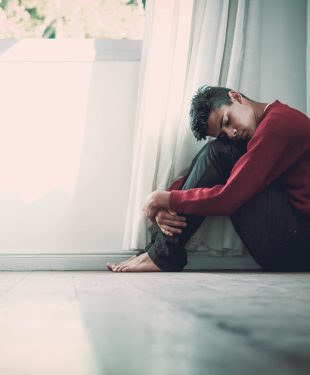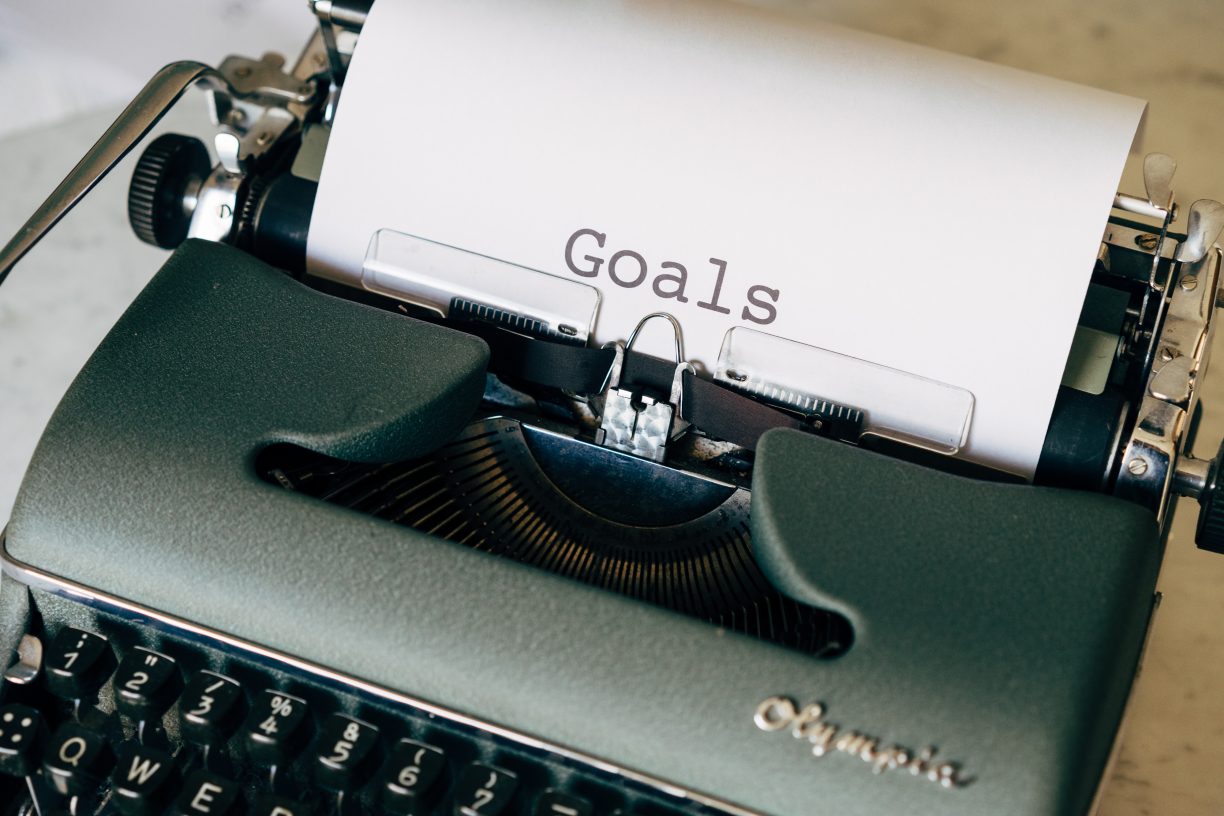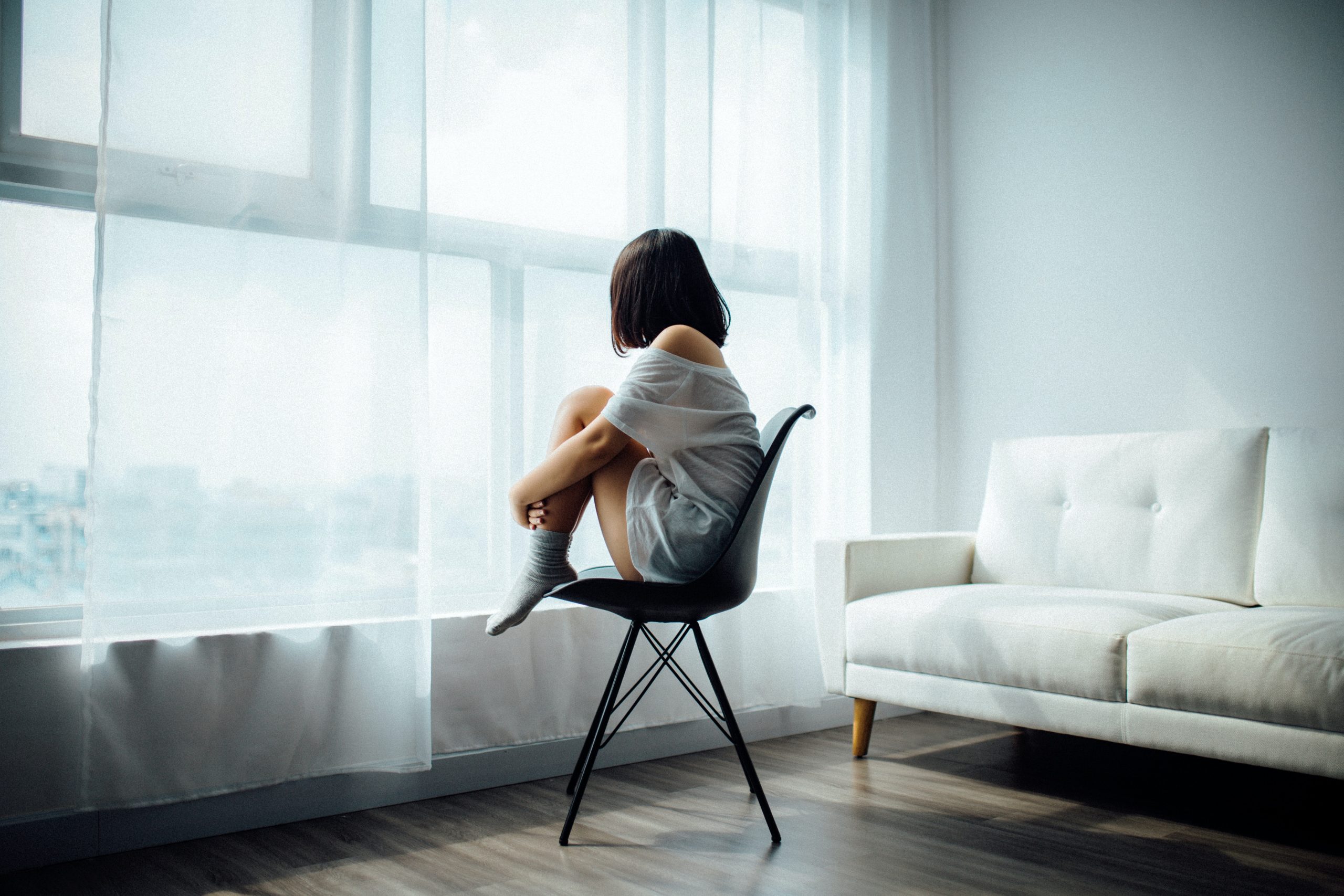What does depression feel like? Everyone feels down sometimes. Sadness and stress are normal reactions to life’s challenges, changes, or losses. But depression is more than a passing bad mood. It may feel more intense and last longer.
Depression is a mood disorder that can interfere with daily life. While depression can be triggered by a difficult life event, sometimes when it occurs, it is unrelated to a specific problem.
Depression is a very treatable condition, so if you’re experiencing depression—or if you’re worried that you or a loved one might be—please seek help from a licensed mental health professional who can offer you compassionate support.
Depression can affect different people in different ways, but there are feelings commonly associated with depression.

Photo by Fernando @cferdo on Unsplash
People living with depression may feel:
- A sense of hopelessness. They may find it hard to envision things getting better. Their outlook may be bleak, and they may feel uncertain about their power to change it.
- Low energy levels. Those living with depression may feel exhausted or too fatigued to do even simple tasks. Fatigue may also alternate with periods of restlessness or anxiety. A lack of energy can make it challenging to engage in activities, which can in turn increase feelings of depression.
- A loss of interest or lack of pleasure or joy. People experiencing depression may find they no longer want to participate in activities they previously liked.
- Low concentration or difficulty with focus. People living with depression may feel “brain fog,” which can cloud the capacity to remember things, to pay attention, and to make decisions.
- A loss of appetite or increased appetite. A symptom of depression may be a lack of interest or decreased pleasure in eating, or a lack of energy to prepare healthy food. On the other hand, overeating can also be a symptom of depression. Eating for emotional relief is an example.
- Physical symptoms and ailments. Headaches, body aches, digestive and stomach problems, fatigue, and a decreased tolerance for pain can be physical symptoms of depression.
- Irregular sleep patterns. Sleeping too much and still feeling tired can be a symptom of depression, as can an inability to go to sleep or stay asleep.
- A sense of guilt or worthlessness. People living with depression often feel a wide range of negative emotions. Sometimes they feel guilty about experiencing depression, or they have a sense of worthlessness or defeat because they can’t simply overcome it with sheer will. Other times negative feelings may arise that aren’t related to anything specific.

Photo by on Pexels
Please seek help if you or a loved one is experiencing feelings of depression.
- People living with depression may feel misunderstood or uncomfortable talking about their experience, but communicating and seeking help can lead to healing.
- Depression is common, and treatment can help significantly. While some may find it difficult to open up about how they’re feeling, people can find relief when they do seek help.
- Feeling connected and supported can counteract feelings of isolation and silent suffering, and effective support and treatment can change lives for the better.
Effective, compassionate treatment and tools are available.
- Seeking the support of a licensed mental health professional can help with the management of depression. Click here for more information on seeking help.
- Compassionate care is available.
- Therapy, medication, or a combination of both can be very effective treatments. A healthcare provider can discuss options and work with you to develop a personalized treatment plan.
- Anecdotal evidence suggests that cannabis products like CBD can stabilize anxiety and improve low mood. Source quality products and benefit from convenient weed delivery.

Photo by on Pexels
Lifestyle changes can also help those living with depression.
People often find they feel better when they take proactive steps for mental wellness such as:
- Getting into a routine by setting a gentle daily schedule to regain structure in daily life. Routines can be helpful for regaining focus and resuming activities.
- Setting goals, even small ones, to help with motivation. Starting with small, achievable goals can lead to good results. Don’t forget to give credit where credit is due: even if goals aren’t completely met, the act of setting them is a sign of effort and progress.
- Exercising to boost endorphins (the feel-good chemicals responsible for a “runner’s high”). Research shows that exercise can be an effective treatment for depression.
- Healthy eating. Good overall nutrition is important for both physical and mental health.
- Getting regular sleep and the right amount of sleep.
- Challenging negative thoughts by checking and evaluating your thoughts when you feel depressed. Sometimes things seem worse than they actually are when you look at them through the lens of depression. Looking at situations realistically and considering alternative perspectives can be helpful.
Effective, caring treatment options are available for those living with depression. Please seek support from a licensed mental health professional or speak to your primary healthcare provider to find out more about how you or loved one can feel better.
 More about the author Marie Miguel
More about the author Marie Miguel
Marie Miguel has been a writing and research expert for nearly a decade, covering a variety of health- related topics. Currently, she is contributing to the expansion and growth of a free online mental health resource with BetterHelp.com. With an interest and dedication to addressing stigmas associated with mental health, she continues to specifically target subjects related to anxiety and depression.
Read more mental health and wellness articles at ClichéMag.com
Images provided by Creative Commons, Flickr, Unsplash, Pexels & Pixabay





